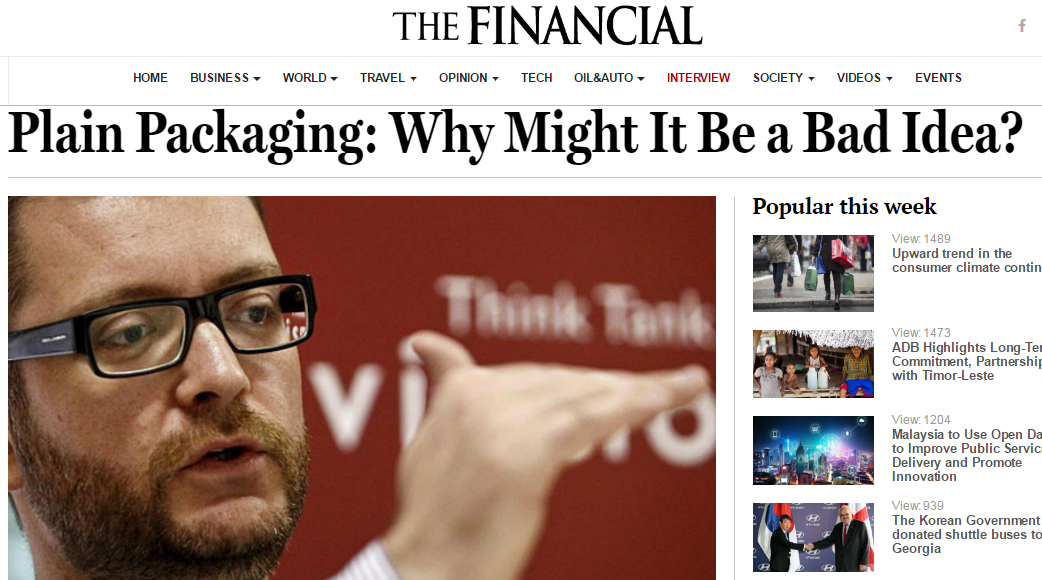Property rights protection of both physical and non-physical/intellectual -- trademark/logo, copyright, patent, etc. -- is among the cornerstones of dynamic, mature and market-friendly economies. Individuals and enterprises develop new products and services via innovation and they create new value, new wealth for society.
I am reposting some developments on IPR in the ASEAN. Thanks to the Property Rights Alliance (PRA) for the bi-weekly IP updates.
---------------
The Nation, October 02, 2017
Lexology, October 04, 2017
The Edge Markets, October 10, 2017
XinhuaNet, September 19, 2017
PRA, October 6, 2017
Lexology, October 11, 2017
See also:
I am reposting some developments on IPR in the ASEAN. Thanks to the Property Rights Alliance (PRA) for the bi-weekly IP updates.
---------------
There's a role for intellectual property protection in
the Thailand 4.0 vision and initiative, and the national government's
Intellectual Property Department sees a role for itself promoting innovation
through offering increased knowledge sharing and more convenient services.
"We are a key mechanism in protecting new technology
and innovation vital to economic development, and we do this by motivating new
developments," said Thosapone Dansuputra, director-general of the
department.
As of November 2017, Thailand will accede to the
so-called Madrid Protocol as member no. 99. This entails cost savings compared
to previously when trademark proprietors are to register their trademarks in
Thailand. The Madrid Protocol is an international system through which
trademark proprietors may apply for protection in several countries through one
basic registration.
Website blocking in Malaysia has significantly reduced
online piracy, with a 74% fall in traffic to pirate websites recorded in the
six months after the government initiated its sixth effort to block such sites
in June 2016, says the Motion Picture Association (MPA). As pirate websites
generate income through advertising revenue, a disruption to their business
model can help stop online piracy, said Oliver Walsh, regional director at the
Asia-Pacific hub for Motion Picture Association International (MPA-I).
The number of trademark registrations is lagging in Laos
as many businesses lack understanding of their rights and fail to register to
protect their intellectual property, according to the Intellectual Property
(IP) Department under Ministry of Science and Technology on Monday.
According to a study by the Intellectual Property (IP)
Department of the Ministry of Science and Technology, only about 40,500
trademark applications have been filed in the Southeast Asian country since
1991. This is a relatively low number of applications for trademark protections
for a country of 7 million and an economy with a GDP of $37.3 billion.
On August 28, 2017, the Brunei Intellectual Property
Office (BruIPO) signed an agreement to introduce a new patent examination
initiative - the Patent Prosecution Highway Plus (PPH+) - with the Japan Patent
Office (JPO), which commenced on October 1, 2017. Using this PPH+ system,
patent prosecution procedures in Brunei are accelerated by allowing BruIPO to
reuse the search and examination results of corresponding patent applications
filed in Japan - thus reducing examination workload and time, minimizing costs,
and improving patent quality.
-------------
See also:
IPR and Innovation 35, Letter to WIPO on World IP Day, May 06, 2017
IPR and Innovation 36, Plain packaging from tobacco and soon to soft drinks, alcohol, ice cream products, May 31, 2017
IPR and innovation 37, US-China dispute on IP, September 17, 2017



























